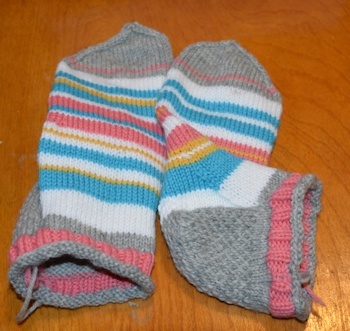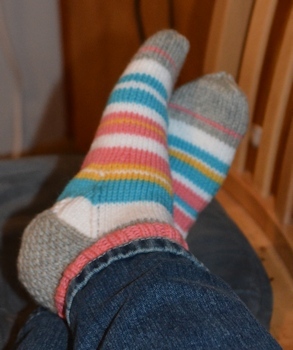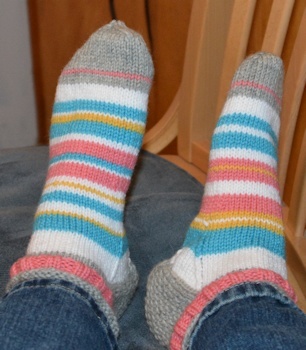Elizabeth Moon's Blog, page 3
October 15, 2016
Fall Beauty Other Than Trees

Lindheimer Muhly
Lindheimer Muhly is a medium-tall grass, whose infloresence can reach 5-6 feet. Unlike Pampas grass, the leaves are now saw-edged on the sides and won't cut you at first contact. This is a grass we rescued from a construction site (that was destroying and entire field of native grasses and forbs) and we propagate it in our grass garden (and enjoy it there.) In the same grass garden are Eastern Gama, Indiangrass, White Tridens, Big Bluestem, two different native Goldenrods, Maximilian Sunflower, Liatris, Eryngo, many others.
Here's "Heath Aster", forming a delicate white mound (and beloved of fall pollinators, wasps, bees, and some butterflies.) It's growing right next to a large clump of Big Bluestem.

And here's one of our two goldenrod species; the other one blooms first and is "out of bloom" now.

The purple Liatris is still in flower, though falling over and mostly faded; the Eryngo is over and dried.
And another picture of Lindheimer Muhly just because I can:

October 11, 2016
"Don't Smile"??? Poppycock.
Ms Shulevitz suggests that Clinton's performance on the town-hall debate was bad because she smiled too much--she even appeared amused at times, while Trump was playing the glowering, bullying thug and threatening her with arrest and imprisonment if he was elected. Ms Shulevitz felt it was wrong, in the presence of so much menace, to smile. She said that Clinton "needs to show us that she understands the gravity of the situation. She needs to help us bear our anxiety."
I'm sorry, Ms Shulevitz, but that's wrong. If you think one must not smile or laugh in the presence of danger, on the brink of the abyss, when confronted with the monster, you do not know much about the nature of courage, of high character. Clinton was not unaware of the gravity of the situation, of the threats Trump made both to her and to the integrity of our form of government. But--as a person of great courage and competence, she reacted with uncowed spirit appropriate to the threats he made. I wish you had been following the commentary on social media, especially Twitter, where hundreds of other women (in my tweet stream alone) expressed admiration, expressed both their understanding of the threats and their appreciation of Clinton's courage, coolness, self-possession, and yes--ability to smile, even laugh at times. They expressed their gratitude for her ability, and that it did help them bear their anxiety. I wish those women had had the chance to write a piece for the NYT. You might have read their essays and learned something. Smiling at the enemy, laughing in the face of danger, does not discount or ignore the danger--it is an expression of undaunted courage and determination, common to men and women.
Meanwhile, in the next section of the same article, there's Susan Chira announcing that Clinton looked "stony-faced" while Trump was throwing out his various threats. (Where Shulevitz and Chira watching the same person? Or, if you gave them still photos of hte same moment, would one say "Oh, but she's smiling too much" while the other one said 'No, she's stony-faced." It would be interesting to know if either woman has seen a video of herself in a difficult situation where etiquette demands staying put and not losing her temper or bursting into tears. I strongly suspect not. I wonder what they thought of the videos from the endless Benghazi hearings (the last clearly nothing more than an attempt to discredit the other party's candidate.) But I don't care what they thought: I care that all each of them saw was a facial expression they could comment on.
And in general it infuriates me that even women continually police other women's expressions, clothes, hair, as if they were each the ultimate arbiter of appropriateness. No, women, you are not. I am not. Nobody is. If you must police hair, eyes, mouth, nose, hands, feet, choice of clothes on other people, spend that time and energy on men for a change. Are their eyes too big or too small? Do you like their manicure? Do they smile enough? Too much? Inappropriately? Is their voice strident, too loud, too soft, too accented? Should their beard be different shape (or not exist?) Suggest that male candidates should restyle their hair, lose 20 pounds, change their shoe style, wear cuffed (or uncuffed) pants, a suit of a different color, and so on. Give all other women in the world a rest for at least 90 days. Because the men will go right on policing women, and it's just too much gravy for you to be pecking at the same target, and too much grief for other women to take it from men and women both. And in the meantime, have yourself videotaped while you give a speech, or have a debate, or stand up to comment in a school board or city council meeting. Notice how much you like being told to smile, or not smile, or whatever.
Finally, I--and a lot of other people--thought Clinton's ability to remain calm, cool, controlled, and yet appear relaxed and confident was a big factor in her success. She didn't glower, make faces, furrow her brow, nor was she showing a silly grin all the time--she smiled when she should have, and didn't when she shouldn't have, in both cases showing her mastery (and yes, that's a masculine noun) of the situation.
(Oh, and it would've been nice if Ms Chula had mentioned that those "facts" Trump had collected, and that she was impressed by--over 80 of them weren't facts at all. They were non-facts at best, lies at worst.)
October 4, 2016
Interesting blog post on the cost of bargains
Though this post concentrates on books, the same may be said for other things in life. With wages depressed in many places, many people cannot afford quality food, for instance. And those who can afford quality food still buy the cheapest they can...which is destructive to farming practices that preserve and sustain agricultural land in all nations, land that is vital to the biological and chemical systems that sustain all life on this planet. When land taxes and other costs force UK and US farmers to quit farming--and their land turns into hardscapes of roofs and roads and parking lots--there's both a loss of vegetation that produces oxygen and a huge load of additional carbon dioxide produced. There's also increased runoff from rain--dirty water into the streams and rivers, causing floods, and less water soaking into the ground to emerge (filtered by soil and rock) as clean springs that provide cleaner water. Moreover, the skills of sustainable farming--the best use of agricultural land, with a lower production of CO2 and production of quality food that is itself less contaminated by pesticides and fertilizers and contributes fewer of these chemicals to groundwater and runoff--are easily lost in the skip of a few generations.
Our human situation on this planet is not sustainable now, and saving as many human lives as possible requires changing our ideas about what is valuable and what is not.
September 29, 2016
Fall Beauties

Bumblebee on Liatris or Blazing Star

Tiger Swallowtail on Maximilian Sunflower

American Snout Butterfly & unk. to left of it, shadowed

Rain Lily with tiny unknown insect

Lots of Liatris out there

 Same butterfly on two different Maximilian Sunflower plants, both plants swaying in the wind.
Same butterfly on two different Maximilian Sunflower plants, both plants swaying in the wind.
Eryngo, the other showy purple fall flower
Current tallgrasses in the propagation garden are Big Bluestem, Indiangrass, Lindheimer Muhly, Switchgrass, and Eastern Gamagrass. We also have some shorter, mid-grass species in there and elsewhere on the place.
Book Progress
2. Untitled (and thus not in italics, because "untitled" is not a great title for this book...maybe writers should switch to the musical method of cataloging works, where some untitled things just have numbers) new book is at 69,000+ words. It is...more of a mystery, though it's still a Vatta book.
Untitled is validating the proposition that healthy writers write better than unhealthy writers, because compared to the composition and revision period of Cold Welcome (when I wasn't healthy) the new book is better in rough than CW was when sent in. How can I tell that? I'm not sick. Untitled is moving ahead slower than books I wrote 20 years ago, true, but that's age (in part) and it's a healthy slow, not a sign of problems in the book itself or in the writer. It's moving ahead steadily, with an internal feel of "wanting to be written" and "having a direction." The characters are arriving into the book (when it's their turn) knowing who they are and what they're doing and why. When I need a "utility" character (someone to accomplish a limited set of actions when none of the existing characters can do it) one shows up, passes the audition, and goes straight to work.
A utility character is different from a spearholder. Spearholders are part of setting: you can't have a bus going somewhere without a driver, so there's a driver, but he may be just a necessary part of the bus. Your POV character may not interact with the driver, or may hand the driver a ticket, token, money, may notice that the driver looks tired, or is young, but it's like noticing that the bus's seats are blue (or yellow or whatever)...scenery.
A utility character has more to do than the bus driver (and the apparent spear-carrier may turn out to be a utility character...if you can do it that way, it's a reasonable way.) For instance, let's say you need someone to find out something, but there are sound reasons why that character isn't able to find it out alone. (The bank president rummaging in the cleaning closet will be noticed and asked why.) Is there someone who *will* run across that scrap of information in the course of their daily life? And who has some kind of connection to the person who needs the information? Like the bank president's spoiled youngest son, who is having to work in the janitorial department of the bank building to pay off repairs on the motorcycle that he crashed over the Easter break? Or maybe it's the daughter of the Loan Officer who was given that job as penance for something else. There's always somebody...) Anyway, that character exists to come across the information in a natural manner, and then to know someone who knows the person who needs it, and is offering it not to solve that person's need--which the character doesn't even know about--but because the character needs to tell somebody for a different reason. Sucn as being seen by the night watchman walking down the hall with a jam jar full of hundred dollar bills, that the character had just found in the cleaning closet, in behind the jugs of toilet cleaner. And the night watchman doesn't believe that story, so up the chain it goes.
Spear carriers don't need backstories, usually. As long as they're just standing in a row holding spears (and maybe singing in the chorus) they're scenery, what's expected in whatever setting it is. The crowd on the sidewalk, the kids in the playground, the mothers chatting on the bench...as the character walks through, they're all scenery. But utility characters, in their usually brief time on stage, are actual characters--speaking parts--and they need backstories and personalities to explain what they're doing and why. Yes, so and so is a clerk in Ladies Dresses. But if she's going to do, or see, or find, or hear something that has import to the main plot, and transfer that information into the chain that leads to a major character's decision to do something plot-worthy, then the reader needs to experience her as a person with agency. You don't of course have to explain everything--tell the whole backstory--but you do have to spotlight that character a little. It matters. It's part of the chain of things that keeps the reader oriented.
So in the new book there's Hector. Unless I change his name (or sex or whatever, but he's pretty solid as he is.) He's not in Cold Welcome. He's in the military, and he has an unexciting but vital job. He makes sure the right form is used for the right purpose and that each form crossing his desk has all the little boxes filled with the correct information for that box. Someone, for their own purpose, wants him to use a form for the wrong thing, and leave many of the boxes empty, or "just make something up; it doesn't matter." It offends him; of course it matters that the right form, and the right information is in the right box. But under the circumstances, he feels he must comply. What does a dedicated paper pusher do when someone wants to falsify records?
Right, he makes copies of what's been done. And from a small (and safe, for now) resistance to what he sees as one kind of wrongdoing, and blames on someone's laziness, comes the discovery of a different and larger wrongdoing. He realizes that this is more...and now he has a motivation for taking the problem up the chain of command.
Hector's motivations, like everyone's motivations, grow from both his innate characteristics and his external experiences and his understanding of them. It is a vector calculation, as he (like all of us) has many competing motivations tugging him toward different actions in a different order.The reader doesn't have to know them all, or observe the calculations, but does need to feel that Hector's actions arise naturally. So the reader needs to see enough of Hector to know what kind of person he is. In what circumstances do people most quickly reveal what kind of person they are? We meet Hector arguing with another clerk about the request (order, actually, from the other clerk's commander.)
Utility characters aren't limited to discovering important information, or passing information along; this is just an example. But they're usually in the middle-man position in some way. A temptation is to make them too special, when they verge on becomin tertiary, or even secondary, characters. Keep them close to "average"; it's their location, or their job, that makes them the likely one to find or do something that propagates toward the more important characters. Good utility characters don't try to hold onto center stage for the whole play--they say their lines an leave (whether or not pursued by a bear.)
September 23, 2016
So, Socks in September...

Hot off the needles, showing non-matching stripes, basic design
These are named Beach House because the light gray heather reminded me of weathered wood cottages, and the coral, golden yellow (not this mustardy in real life) and turquoise were colors I saw a lot down on the coast (and even inland) as a kid.
Here are a couple of "on the feet" pictures. Socks have not been blocked and the loose yarn ends from all the stripes are still loose inside. I'll start dealing with those ends tomorrow.


The gray yarn is a new yarn I'm trying out. When the ends are woven in, I'll do the usual first wearing (24 hours to "set" the shape to my foot) and then wash them. It's a superwash yarn, as is the turquoise, but from different manufacturers. I prefer to handwash, so I can include stripes from yarns that need to be handwashed (and also because I haven't been really happy with either of the other superwash yarns I've tried in the machine. One shrank on the second wash; the other was limp and stretched out.)
These aren't the "daylight" colors--but close enough to give the idea. The turqoise is actually a bit darker, and the yellow a big more golden and less like French's mustard. That coral pink ("Shrimp" in Cascade 220) looks distinctly different at different angles, as these two pictures show. But at any rate they're very summery-looking.
September 18, 2016
The glamorous life of a writer
I knew that prior to publication, writers "suffered," in various interesting ways. They worked long hours at uninteresting jobs; they lived in garrets with inadequate heat, a shared toilet one floor down, and not enough food. They had demanding wives (most of the writer characters I read about early were of course men, except for Jo March in _Little Women_, who had a surprisingly demanding husband ("Let's go be poor together and have a school for runaway and troubled boys...though I really do like what you write when you write what I tell you instead of those stupid adventure stories...") ANYWAY.
What I didn't know and hadn't considered (even though there's a hint of it, in terms of academic publication, in Sayer's great mystery _Gaudy Night_, was the non-creative part of a writing life. The creative part is what everyone knows about...the image of Virginia Woolf with her head in her hand, clearly thinking Creative Thoughts expresses it. And that part is, of course, the fun part, the part without which no actual writing is ever published. But there's the other part. Nine parts out of ten. And it starts with the plain old boring everyday, mundane, routine aspects of everyone's life: the need for daily sleep, clothes, food, and some minimal standard of organization and maintenance. Often complicated, in real writers' lives, by the other people with whom the writer shares space. Sleep goes better if you have a half-way comfortable place to do it, indoors, with a roof that does not leak onto you. And that means a house or apartment, however small and humble, and that means...well, the broom and mop and bucket and hammer and screwdriver and pliers and a sink to wash things in and someting to hang the wet things on while they dry (or, of course, washer and dryer but I'm starting small here.) And money. Because whether rent or own, a roof over your head isn't free. Or not often or for long. Even your tent needs mending from time to time, and mending takes tools and materials which...cost.
I will never forget the idiotic New Yorker review of some new young male novelist's book in which the reviewer, after pointing out certain shortcomings, then consoled himself by mentioning that after all, novelists shouldn't be looked to for guidance about any life issues because their kind of work was so solitary and so protected, that they just didn't have the experience. I read that review after a day that had included hauling the autistic kid to and from a country day school, a trip to the vet to take the cat for an overnight since the termite guy was coming that day, grocery shopping (since I had to be out and about anyway), and working on book of that year in the day school's parking lot, because....termite exterminator fumes at home. And when I'd read the review and muttered, there was supper to cook, laundry to do and then fold, and...more. Lots more.
What brought up this topic was the thought of tomorrow's chore list. I'm in mid-book again, and in day-dreams imagine that every day will afford me the time and energy to write a significant number of words on it until the first draft is done. But. Not So Quick, writer-brain.
Tomorrow I need to be working on the book, yes. And I need to be working on a story that's also on-contract. And there's the laundry. And the kitchen floor is begining to feel crunchy when stepped on. And the hand-knit socks that need to be hand-washed (a quick chore, a nice break from writing, but alas the other laundry will not do itself. Certain small tiled rooms must be tended to. There's the personal hygiene aspect, too: writers at home alone may skip some of these (perilous but they do it) but writers who need to go pick up a gallon of milk, a dozen eggs, a bag of carrots, four onions, some garlic...and "something for supper" ...need to be at least reasonably clean and clothed. Medical issues will need attention several times a year, lest the writer be laid low with flu just when a deadline looms. The larger the family, the oftener medical issues come up, never conveniently for the creative process.
Add to this the non-creative parts of writing. There's the revision the writer does on her own. There's the revision the editor asks for after the writer turns in her absolutely-perfect-best-ever-no-word-punctuation-needs-changing* manuscript. (The * refers to the chimaeric nature of the absolutely-perfect-best-ever manuscript. This is a mythical piece of writing not known in real life.) (And NOT just because "editors want their stamp on it.") Revision can actually be fun if you have enough time...time between finishing something and doing the revision, and time for the actual revising. Usually, though, writers don't have enough time. They're on to another project as soon as the one just finished is off to the editor. Beyond revision is copy-editing, about which much has been written by many people, including me. I am firmly on the side of "let writers check the copy-edited manuscript" --a standard in The Old Days, but now some publishers won't let writers check the copy edits. It does take more time, because to do it right the writer will compare the copy-edited manuscript word for word with the approved revised version and make (one likes to think) intelligent choices where the CE has changed, or queried, something. And beyond that is the page-proof stage, when the manuscript is "set in type" (even though it's all done electronically now, not actual pieces of type racked into a form) and the writer gets to see for the first time what the book may look like. Page proofs need to be checked against the final copy-edited pages, also word by word. Both hand-set type and electronically set type are prone to certain errors (not the same errors.) For instance, early in the electronic typesetting days, there was some program that--when working from a word processor's output--would smuch together two paragraphs of dialogue into one, burying the double quote marks of the joint in the middle, if one of the dialogue paragraphs crossed the word processor's page break code. It was hard to see, if you didn't learn to look for the double-double quotes or actually read every paragraph. And that was only one of the systemic mistakes that used to show up.
So...I'm in mid-book, and the story's running freely...and in comes a non-creative part of the writing life. I have to detach my writer-mind from the book, beg the book not to die while I'm neglecting it (and books will do that sometimes; they're like small children--scant patience for being ignored), turn the mental gears from "Make story" setting to "Find mistakes" setting. The alternative is to allocate the time available for writing to the different writing-related chores, which takes the nimbleness to jump quickly from Make Story to Find Mistakes and then back to Make Story and so on. Meanwhile, that kitchen floor...and checks to write for LifeStuff, and getting a flu shot, and keeping track of various family members' medical appointments, and the growing grocery list, and the laundry, and...so on.
It's my life and I like it, but glamour--the imagined Writer in the Ivory Tower, or the plush study with lovely bookshelves stuffed with books that I thought of when younger and unpublished--is not a part of it. When my first book sold, the muffler fell off the car the next day. Another book, and the hot water heater line burst in the middle of the night and flooded the hall. Getting a new contract doesn't cook supper, or get the laundry into the washer, or keep the car from needing repairs or the septic tank from needing a pump-out. The writing life is just life...life plus writing. Which is why so many of us say, to someone who says they'd like to write but will have to wait until they're not so busy and can find some time to write..."You don't FIND time to write; you MAKE time to write." And that explains the crunchy parts of the kitchen floor. It's not glamorous, but the writing will get done (with as much of the other as can be squeezed in as well. Which is quite a lot, actually.)
1. Get up, dressed, personal hygiene
2. Breakfast eaten at computer, checking email without spiling cereal on the keyboard.
3. Wash dishes and at least sweep whatever's crunchy off the kitchen floor.
4. Write on the new book and new story
5. Grocery and flu shot run (20 mile drive there, 20 mile drive back)
6. Laundry (could be started earlier, but realistically....) and putting up groceries
7. Sandwich. Pay bills. Check email, Twitter, Facebook, etc *briefly*
8. Post Office if not included in Grocery and flu shot run (should be but will I remember?)
9. Check to see if FedEx delivery has come.
10. Prescribed rest perior in afternoon.
11. Check to see if FedEx delivery has come (branch here--if it has, clear kitchen table, change supper plans)
12. Prep for supper (the chopping of onions, peppers, celery, carrots, and garlic is heard in teh land.)
13. Write on new book or story, whichever is moving best OR (if FedEx delivery came) start on page proofs
14. One hour from sunset, actually start supper (husband comes in from outside work at sunset.)
(you get the idea...totally glamor)
September 13, 2016
News of the Day: Yes, I'm now on Facebook
September 10, 2016
Multi-factorial Progress Report
Recovery from hitting the wall is taking longer than I had hoped, but if you run yourself into a wall, it often does. The Lyme Disease (the tick that bit me shortly after I'd hit the wall) and its treatment slowed things down, and then weather (daily rain followed by an abrupt change to very hot, very humid weather when outside exercise was impossible and I still could not drive as far as a town with a mall) prevented re-conditioning. I went to WorldCon, tried to stay on my new, prescribed schedule, but it was still an exhausting trip. I have not sung with the choir since April and want very much to get back to it--but I have to be able to handle both the rehearsals (drive 50 miles into the city, rehearse, and drive 50 miles back at night) and the Sunday morning services. Planning to try making rehearsal next week, if nothing else goes wrong. My vision is slowly (fortunately very slowly) decreasing, too, in a way that nothing can be done about.
Knitting also had to go, when I couldn't knit even one needle without mistakes. I got back to it a few weeks after starting to write again, but this year's planned knitting is now impossible to achieve. I can't knit as fast (or write as fast) and if I skimp on sleep for any reason, I make stupid mistakes (lots!) in the knitting. But I'm knitting, more slowly, socks I like while I'm knitting them and once they're on my feet.
Because writing at the rate I was writing takes enough time that I can't get enough sleep, and therefore risk hitting the wall again (do not want to do that, and have all the words and ideas and joy in life evaporate from my head leaving me unable to do the things I love) I'm redesigning the rest of my life, with the understanding that plans made do not lead to what happens...necessarily. But still, if you want to get somewhere, you start in that direction and prepare for the detours and blockages and necessary rest stops and plan also to enjoy the detours as much as possible.
So: I can write if I don't push it too hard. I can have energy to spare for the other things I love--singing, knitting, cooking, gardening, work on the land, photography, etc.--if don't have commitments to meet deadlines that mean it's all I get to do. And if I can re-condition as the weather cools this fall, and be better prepared for the heat next summer. I'd like to go back and paint a few more pictures. Write some more poetry. Go on the Central Texas Yarn Crawl next year (can't this year: deadlines.) Sing the Mozart Requiem one more time. Spend more time actually with (not just in the same piece of land with) my husband, because you never know for sure how much time you've got left, and more time with friends, ditto. I was told about 20 years ago that I was pushing too hard and would wear out and should take better care, etc, etc....and I saw no alternative to what I was doing, which was whatever it took to keep us afloat and me sane. In local vernacular, "back your ears and pull that plough." Took awhile for the wearing out to happen, but it did, and now that is what has to be dealt with. So I am.
I'm in better shape in several ways than I was in April. The words are flowing. The stitches are getting made. I'm cooking more again. Progress. Always before "making progress" meant push harder, work longer, dig deeper...but now that whole "just stay up and work until it's done" thing is off the table. Making progress without losing ground is the new goal and it's not the way I've ever tackled a problem...so I'm trying to learn the new skills required. But...there's progress. I brought two horses back from the brink of malnutrition and (in one case) overwork; they both had extended lives and some good years after. So surely I can do the same for myself (even if my malnutrition was in the other direction.)
When the new new book is done, I'm going "off-task" for as long as it takes to reach the new equilibrium. Of course I will write, because it's what I do (but so are the other things I used to do as well as write.) I don't consider it "retirement" (because that would mean not writing, which is...ICK!) but I do consider it switching modes. (And I really, REALLY, want to go on that yarn crawl next year. And learn to deconstruct and repair the pumps that circulate water in our system. And get back to making our bread. And knit more socks and maybe even (gasp!) a sweater.)
September 7, 2016
Knitting Needles need new home
WE HAVE A WINNER ALREADY! (The internet's really really fast!)

Elizabeth Moon's Blog
- Elizabeth Moon's profile
- 2621 followers



